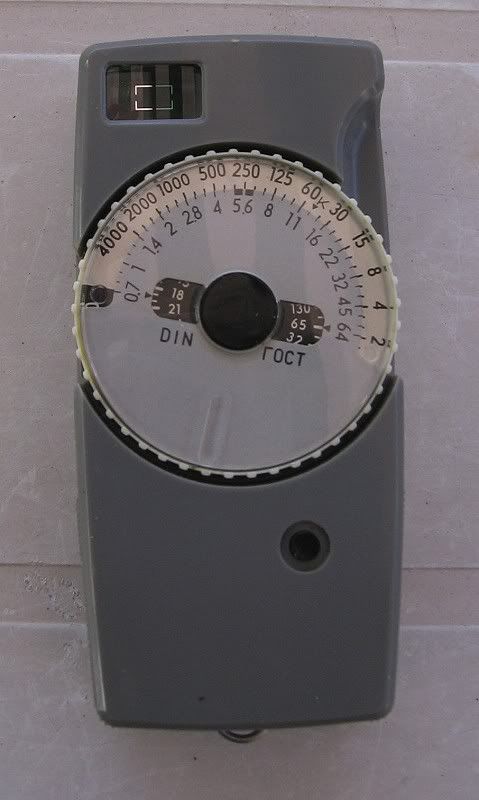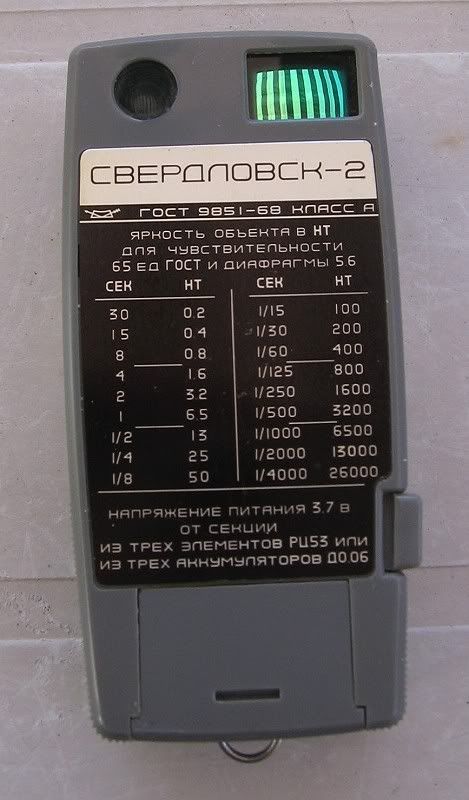julio1fer
Well-known
Maybe a bit OT but I believe this is the likely place to ask.
This is a Russian supposedly good quality light meter. I found a manual in Russian . I don't understand Russian, but the pictures are nice and some of the specs may be guessed from the tables.
I'm using this meter with 3xLR-44 since the original PU-53 battery is no longer available. This gives 4.5 V instead of the designed 3.7 V.
Is anybody else using this meter or other designed for PU-53? What battery did you substitute for the PU-53?
Two more questions. First, there is a mysterious black button about 5 o'clock from the exposure wheel, anybody knows its function? (number 7 in the manual photograph)
Second, the meter is giving exposure for +1 stop. This is easy to correct, I just set the meter at 18 DIN when using 21 DIN film. May this be related to the higher voltage of the batteries I am using? Has anybody else experienced this same exposure offset?
Thanks for any comments.
This is a Russian supposedly good quality light meter. I found a manual in Russian . I don't understand Russian, but the pictures are nice and some of the specs may be guessed from the tables.
I'm using this meter with 3xLR-44 since the original PU-53 battery is no longer available. This gives 4.5 V instead of the designed 3.7 V.
Is anybody else using this meter or other designed for PU-53? What battery did you substitute for the PU-53?
Two more questions. First, there is a mysterious black button about 5 o'clock from the exposure wheel, anybody knows its function? (number 7 in the manual photograph)
Second, the meter is giving exposure for +1 stop. This is easy to correct, I just set the meter at 18 DIN when using 21 DIN film. May this be related to the higher voltage of the batteries I am using? Has anybody else experienced this same exposure offset?
Thanks for any comments.


